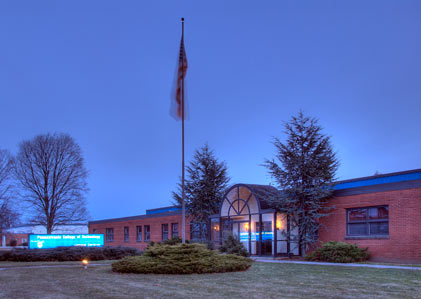How HVAC Instructors Use VR Training
One of the early adopters of VR training for HVAC is Truckee Meadows Community College (TMCC) in Reno, Nevada. TMCC’s involvement with VR began with an interest in using it as a marketing tool that could reach prospective students in the areas just outside of Reno. VR was a portable way to introduce people to what was available at TMCC and what HVAC was like as a career option. The first VR module was rudimentary and grounded in theory: it covered thermodynamics and refrigeration. It started as an experiment.
“The goal,” says Wes Evans, Lead HVAC/R Instructor at TMCC, “was to try and take it out to those small towns outside Reno and introduce people to what they might see in refrigeration and/or air conditioning.”
The next step at TMCC was to integrate the VR module with Canvas, an online learning software popularized during the pandemic, so it could be used in the upcoming semester’s curriculum. The implementation came with some challenges, and by the time Evans was ready to get his first cohort of around 20 students up and running with VR, they’d already moved beyond the introductory theory that the module included.
“There was some redundancy there,” Evans says. “But I told the guys to focus on the animation and focus on what they see in the VR compared to what we have in the labs here at the school. They have to keep an open mind.”
In the VR, Evans’ students walk into a building, talk to a receptionist, and locate a particular piece of equipment. When ready, they click forward, and the module will help explain and identify what the student is looking at, and how the equipment and its underlying thermodynamics work. But it presents that in a way that wouldn’t be visible in the real world.
“With refrigeration, the equipment takes the heat load and absorbs it into the refrigerant, and then it takes it out to the condenser and rejects it,” Evans says. “So that’s what you’re seeing in the VR. You’re seeing it literally.”
This module is, again, theory-based and thus more instructional rather than quest-oriented. There may be some quiz-type questions to respond to, but it’s still relatively basic. If it was someone’s very first HVAC class, the module might take them an hour to work through; if introduced later in the semester, it would take far less.



